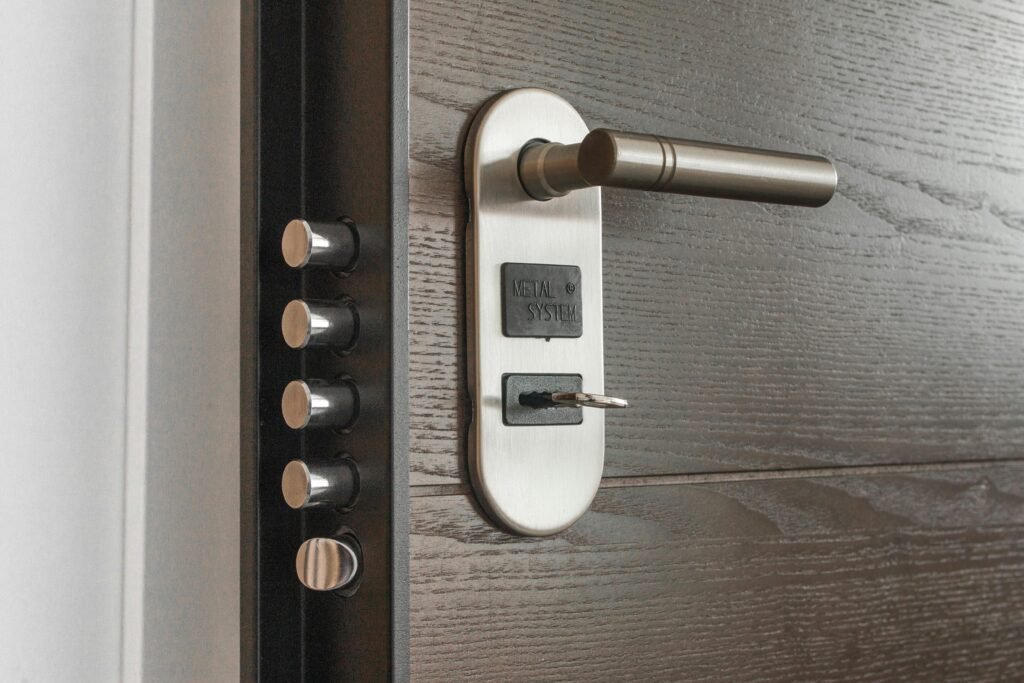In an era dominated by smart home technology and digital solutions, mechanical door locks continue to stand as reliable guardians of our homes and businesses. While smart locks capture headlines, traditional mechanical locks offer unique advantages that make them an intelligent choice for security-conscious property owners.
Understanding Mechanical Lock Technology
Mechanical door locks operate through precisely engineered physical components—no batteries, no Wi-Fi, no software updates required. The most common types include pin tumbler locks, wafer locks, and lever locks, each utilizing different mechanisms to prevent unauthorized entry. The pin tumbler lock, invented over 4,000 years ago and perfected by Linus Yale Jr. in the 1860s, remains the gold standard for residential and commercial security.
These locks work through elegant simplicity: when the correct key enters the cylinder, it aligns internal pins or wafers to a specific height, allowing the cylinder to rotate and the lock to open. This mechanical precision has been refined over centuries, resulting in remarkably secure and durable products.
The Advantages of Mechanical Locks
Reliability Without Dependencies
Mechanical locks never run out of battery power or lose connectivity. They function identically whether it’s scorching summer heat or freezing winter cold, during power outages or internet disruptions. This independence from external systems makes them particularly valuable for critical access points.
Long-Term Durability
Quality mechanical locks are built to last decades. With minimal maintenance—occasional lubrication and cleaning—a well-manufactured mechanical lock can provide reliable service for 30 years or more. Unlike electronic devices with planned obsolescence, these locks represent a true long-term investment.
Cost-Effectiveness
Mechanical locks offer exceptional value. The initial purchase price is typically lower than smart alternatives, and they incur no ongoing costs for batteries, subscriptions, or system upgrades. For property owners managing multiple entry points, this cost difference becomes substantial.
Universal Compatibility
Mechanical locks fit standard door preparations and work with existing infrastructure. They require no additional wiring, hubs, or network configuration. This universality makes them ideal for retrofit applications and ensures straightforward installation.
Security Through Simplicity
Without digital connectivity, mechanical locks are immune to hacking, malware, and cyber attacks. They cannot be compromised remotely, making them particularly attractive for high-security applications where digital vulnerabilities are a concern.
Choosing the Right Mechanical Lock
When selecting a mechanical lock, consider these key factors:
Security Grade: Look for locks that meet ANSI/BHMA grading standards. Grade 1 locks offer the highest security for residential applications, withstanding significant forced entry attempts.
Cylinder Type: Pin tumbler cylinders with six or seven pins provide superior pick resistance. Consider high-security cylinders with additional features like mushroom pins or sidebar mechanisms for critical applications.
Material Quality: Solid brass or steel components resist corrosion and physical attack better than plated zinc alloys. The lock body, cylinder, and strike plate should all demonstrate robust construction.
Keyway Control: Restricted keyways prevent unauthorized key duplication, maintaining your security perimeter over time.
Bolt Throw Length: A minimum one-inch throw length provides proper engagement with the door frame, resisting kick-in attempts.
Maintenance for Longevity
Proper maintenance extends the life and performance of mechanical locks:
- Lubricate the keyway and internal mechanism annually with graphite powder or silicone-based lubricant (never oil-based products)
- Keep the cylinder clean and free from dirt or debris
- Ensure proper door alignment to prevent binding
- Check strike plate screws periodically and tighten if necessary
- Replace worn keys before they damage the lock cylinder
The Best of Both Worlds
Many property owners find success in a hybrid approach, using mechanical locks for some entry points while incorporating smart technology elsewhere. This strategy provides convenience where desired while maintaining the reliability and security of mechanical locks for critical access points.
Conclusion
Mechanical door locks represent proven technology refined through generations of engineering. They offer unmatched reliability, impressive longevity, and freedom from digital vulnerabilities. In a world increasingly dependent on technology, these traditional security solutions provide peace of mind through their simplicity and dependability.
Whether you’re securing a home, business, or rental property, mechanical locks deserve serious consideration. Their combination of proven security, minimal maintenance requirements, and independence from external systems makes them an enduring choice for property protection.

